
"I am happy with my life," said Zhang Kui, a 35-year-old farmer from Dakaihe village, Pu'er city. "I earn more than 200,000 yuan a year by planting coffee trees."
Zhang said he used to make just a few hundred yuan a year by planting corn. Now he runs a coffee farm of 3.33 hectares, lives in a well decorated three-floor villa and has two cars parked in his yard, both full of dried coffee beans.
"I am the richest man in the village all thanks to coffee beans," he said.
Peng Yuanguo, vice-mayor of Pu'er, said: "Coffee has become one of the pillar industries of Pu'er city."
The city produced 36,500 tons of coffee beans in 2012. A total of 43,300 hectares were planted for coffee last year. Pu'er produces most of China's coffee beans.
"More than 80 percent of Pu'er coffee beans are exported. We hope more and more Chinese coffee lovers will enjoy the premium taste," said Lu Han, director of the Pu'er Coffee Industry Federation.
So, how does one persuade a nation of tea drinkers to buy into coffee culture?
Belinda Wong, president of Starbucks China, said there are huge differences between residents of first-tier cities and those from smaller urban areas in terms of shopping habits.
While first-tier city coffee brewers are appraising new designer interiors and upgrading their outlets, people in lower tier cities have yet to try their first cup of coffee, said Wong.
Wong said Starbucks plans to get more space and couches in its Chinese outlets because the Chinese like to meet people and do business inside them.
In addition to its local, customized design, Starbucks also introduced many products tailored specifically for Chinese customers, such as black sesame green tea and red bean frappuccinos.
British chain Costa Coffee introduced hot chocolate and peach juice for Chinese customers who don't want coffee.
In 2011, Starbucks opened its first store in the lower-tier Chinese city of Shijiazhuang in Hebei province. Local people flocked there after hearing about it.
"I had to wait around 15 minutes to place my order," said local resident Xiong. "Whether it's Starbucks, Costa or Pacific Coffee, the words do not only mean coffee. They represent a fashion,"
In first tier cities such as Beijing and Shanghai, coffee shops are often found in luxury shopping malls and modern office buildings. They have developed a cachet as the place to dine, to linger in, to socialize and to do business.
Coffee is indeed changing lives in China. Back in Pu'er, which changed its name from Simao back to its historical name to mark the origin of the famed tea leaves and which last year was honored as the capital city of Chinese Pu'er tea, it's now the coffee business that is calling the shots.



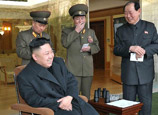
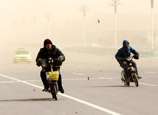


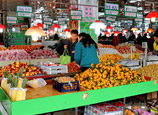
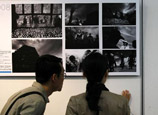

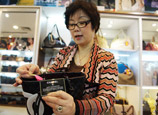






 Over 900 dead pigs found floating in Shanghai river
Over 900 dead pigs found floating in Shanghai river


![]()
